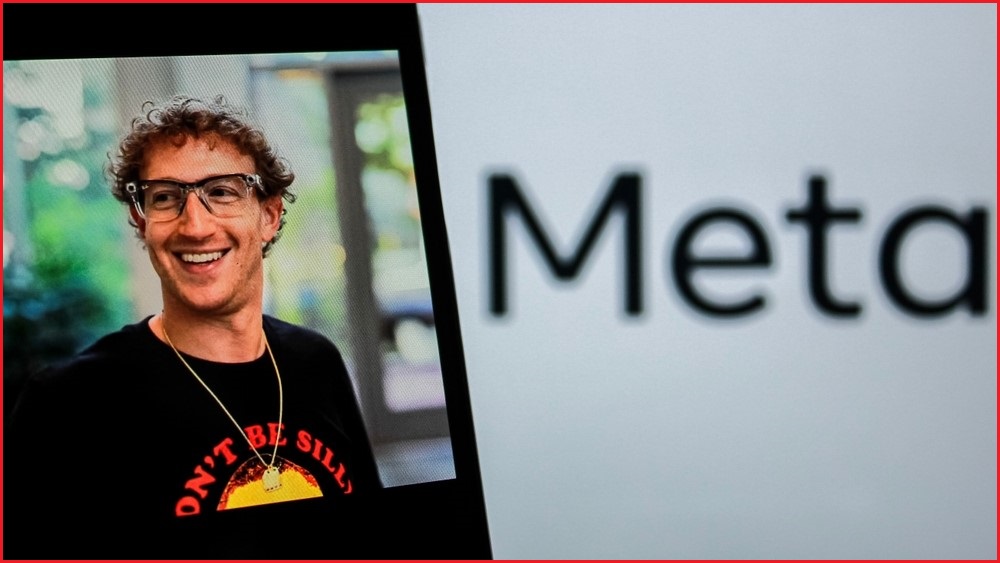Meta will lay off around 3,600 of its lowest-performing workers, the latest in a series of dramatic changes as CEO Mark Zuckerberg repositions the tech giant for success in a second Donald Trump presidency that experts believe could see extensive tech job cuts.
Whereas executives “typically manage out people who aren’t meeting expectations over the course of a year”, Zuckerberg wrote in an internal memo to employees, “we’re going to do more extensive performance-based cuts during this cycle”.
“I’ve decided to raise the bar on performance management and move out low-performers faster,” wrote Zuckerberg, who said retrenched employees would be replaced with new hires during the course of what he said was “going to be an intense year”.
Meta will inform terminated employees by 10 February and offer “generous severance”, Zuckerberg said, promising that “we won’t manage out everyone who didn’t meet expectations for the last period if we’re optimistic about their future performance”.
Meta has over 72,000 employees, meaning the latest round of cuts would affect far fewer than the roughly 11,000 employees laid off when Zuckerberg reconsidered the metaverse in 2022, and the 10,000 roles he cut during Meta’s “Year of Efficiency” in 2023.
The cuts come after significant policy changes, including the abolition of fact-checking on Meta’s Facebook, Instagram, Threads, and WhatsApp platforms; the termination of Meta’s diversity, equity, and inclusion (DEI) initiatives; and plans to stop policing hate speech.
Reports suggested some employees were concerned the company’s philosophical reinvention meant the latest cuts would target racially or gender diverse employees who lacked what Zuckerberg recently referred to as “masculine energy”.
Zuckerberg echoes Musk in latest push
Meta’s decision comes on the heels of a series of policy changes that saw it and its rival Google reduce the number of annual performance reviews from two to one because workers complained the system was too time-consuming.
Meta managers rate employees across seven grades that range from “meets some expectations” to “redefines expectations”, with peer meetings to justify their ratings and employee bonuses directly linked to these reviews.
Meta subsequently returned to twice-yearly assessments after employees asked for better communication from managers, highlighting the difficulties inherent in a review system that is now being used to excise lowest performers.
Low-performing employees have previously been linked with low company morale and the stifling of innovation, and addressing these issues — which may be due to lack of competence or just lack of motivation — remains a particular challenge for managers.
Even as it stokes the paranoia of company workers, Zuckerberg’s transformation echoes the take-no-prisoners management style of tech rival Elon Musk, who famously stripped the workforce of Twitter as it became X.
Musk unapologetically pushes his employees, calling working from home “immoral”, copping a $1 million unfair dismissal payout after firing an employee who didn’t respond to his email, and attracting a class action lawsuit after culling nearly 150 workers aged over 50.
More layoffs likely in 2025?
With Trump’s policies expected to foster a business environment in which tech firms are less bound by workforce regulations — and in which many firms are likely to again slash jobs as they realign around artificial intelligence — many believe 2025 is likely to see more layoffs.
Microsoft has also confirmed performance-based job cuts to CNBC after recent layoffs by the likes of Tesla, Amazon, Google, TikTok, and Snap.
A recent report by tech consultancy Janco Associates, for one, found 71,000 IT jobs were cut over the past two years — although there were fewer cuts in 2024 than the year before, as The Register reported.
Many entry-level job roles had been automated out of existence, Janco found, adding that people with skills in new areas — AI in particular — were still likely to enjoy strong opportunities in the tech sector.










